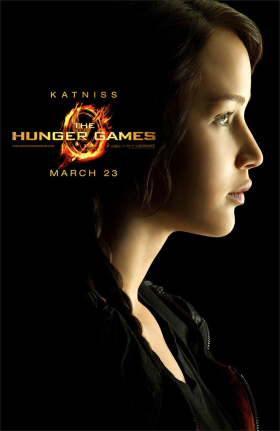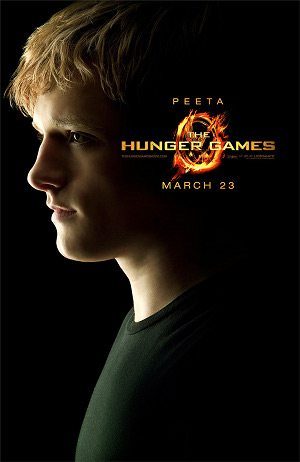 Film adaptations are like cover songs. An artist attempts to find the essence of an original work, bringing out its finer qualities while fine-tuning it into something they can call their own. Guns N’ Roses made it work with their cover of Linda and Paul McCartney’s Live and Let Die. They knew that for a cover to be special they had to not just play the notes, but play with them – look between the lines and find the jazz.
Film adaptations are like cover songs. An artist attempts to find the essence of an original work, bringing out its finer qualities while fine-tuning it into something they can call their own. Guns N’ Roses made it work with their cover of Linda and Paul McCartney’s Live and Let Die. They knew that for a cover to be special they had to not just play the notes, but play with them – look between the lines and find the jazz.
If a filmmaker were trying to strike the proper balance between servicing a devout fanbase while still crafting an adaptation that’s welcoming to outsiders, it’s safe to call The Hunger Games a success. Director Gary Ross, along with co-writers Billy Ray and Suzanne Collins (also the author of the book on which the film is based), have put together a capable cast and managed a serviceable film – a bare minimum necessity when embarking on a prospective franchise. Unfortunately the film never strives to be more than what it has to be and, to that effect, I was disappointed.
Which is not to say The Hunger Games is bad. It’s actually pretty good, and it’s made all the better by a few performances I’m sorry to say are not on screen nearly enough. Where it comes up short is in its inability to capture a moment in time, to see not what the fans wanted (a teenybopper love story) but instead what made the book work as an allegory for current frustrations national and international.
Taking place in a totalitarian future where the US has fallen and in its place fear-mongering society Panem rose, Hunger Games the book reads like a worst case scenario beyond even Fox News’ wildest dreams. To quell uprisings, two children (one boy and one girl) from each of the twelve districts are chosen to compete in The Hunger Games: a fight to the death where only one is left standing – but that one is promised riches for both themselves and their district. When Katniss Everdeen’s (Jennifer Lawrence) young sister Primrose (Willow Shields) is chosen, she instead volunteers herself as one of the Games’ 24 “tributes.” She’s accompanied by fellow District 12 tribute Peeta Mellark (Josh Hutcherson).
 Ross and company make slight deviations from the book, subtle enough to make sense for the film but also not piss off the zealots. How Katniss comes into possession of her now iconic (for fans at least) Mockingjay pin is noticeably different, but also makes sense in the context and pace of the film. In deciding what to cut and where, Ross straddles the line between butcher and surgeon.
Ross and company make slight deviations from the book, subtle enough to make sense for the film but also not piss off the zealots. How Katniss comes into possession of her now iconic (for fans at least) Mockingjay pin is noticeably different, but also makes sense in the context and pace of the film. In deciding what to cut and where, Ross straddles the line between butcher and surgeon.
Some performances fare better than others. Jennifer Lawrence is solid as Katniss, but as she was a surrogate for readers in the book, there never feels like there’s enough to hang your hat on. She’s a skilled hunter, good with a bow, and she’s a natural caretaker. But, like similar male action heroes, there’s little going on beyond the ever-present and accounted for surface level. Lawrence is given a few scenes to express genuine emotion and she makes the most of her performance in those fleeting moments.
Josh Hutcherson, as fellow D12 tribute and potential Katniss love interest Peter Mellark, doesn’t fare as well. His Peeta is something of an insufferable wimp. That’d be okay if Hutcherson were able to inject Peeta with genuine personality, but the performance is flat. Peeta’s sole purpose in the film is to be sensitive and in distress. It puts a strain on the love story, as it’s hard to see what Katniss sees in Peeta. He’s such a flat character, the weakest part of the book, and neither Hutcherson nor the filmmakers do him any favors.
On the opposite end of the spectrum, you could craft an entire movie around the performances of Elizabeth Banks and Woody Harrelson in this – playing Effie Trinket and Haymitch Abernathy, respectively. They show the audience what a toll the Games have taken on society over the years and to clue in the fact that hey, maybe killing our kids off for sport isn’t such a hot idea. Harrelson in particular, as a former Games winner turned drunk, has become such a reliable actor over the years that it comes as no surprise that he kills it here once again. In a film where Lenny Kravitz attempts scenes of dialogue, its heartening to have the two above-mentioned performers in tow as well – helping as best they can.
 The final performance I want to mention is Alexander Ludwig as Cato, a competitor in this latest iteration of Hunger Games. He’s the most immediate villain of the piece, and is effective as a brute becoming more and more unhinged as he feels his plan slipping away. This was a smart bit of casting, as the former Abercrombie & Fitch model has the proper physicality and presence to pull it off. His final moments in the film show him making a clever realization, and to his credit Ludwig pulls it off. A performer to watch I hope.
The final performance I want to mention is Alexander Ludwig as Cato, a competitor in this latest iteration of Hunger Games. He’s the most immediate villain of the piece, and is effective as a brute becoming more and more unhinged as he feels his plan slipping away. This was a smart bit of casting, as the former Abercrombie & Fitch model has the proper physicality and presence to pull it off. His final moments in the film show him making a clever realization, and to his credit Ludwig pulls it off. A performer to watch I hope.
The film takes a few key missteps that lead to what is an altogether unsatisfying climax. The first being the love story. Similar to John Carter‘s failings, there no chemistry on screen between Katniss and Peeta. Granted, this is due in part to the fact that Hutcherson’s Peeta has all the personality of a white crayon. But the series of events that bring them closer simply do not register.
Also lacking in execution is Katniss’ relationship with young Rue (Amandla Stenberg), another contestant. This entire relationship develops over the course of ten minutes in the film. So when what is supposed to be a major emotional beat occurs, it falls flat. Partly because it happens offscreen (the PG-13 rating necessitates that), and partly because these characters barely have any relationship at all. Dedicating more time to a bond, particularly during the training scenes in the Capital, would have benefitted an otherwise lost moment.
I don’t doubt that fans of The Hunger Games will love the film. As I said before, it’s a decent effort that is effective if not affecting. A solid work that never jumps off the screen, it becomes a decent time killer but never anything special or particularly smart. As far as adaptations go I’d say it’s in line with The Pelican Brief or The Firm, or any of the many churned-out John Grisham adaptations. It’s missing that one scene or emotional beat that would make it a satisfying repeat view. Also missing is Gary Ross’ visual flair – a shame given this was the same man who directed the mesmerizing Pleasantville.
The Hunger Games sticks to the script and very rarely deviates, only out of necessity. This will be pleasing to hear for some. But it’s also disappointing given our socioeconomic climate and a source material ripe with potential for commentary. For all intents and purposes, the film is the book. It won’t hurt box office, but it’s also not a movie you’ll be sliding into your Blu-ray player a year from now. In making sure all the right notes are hit, Ross and co. have missed out on the opportunity to create a little jazz.



Out of a Possible 5 Stars